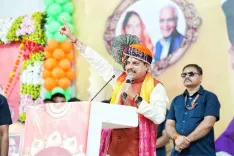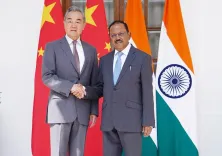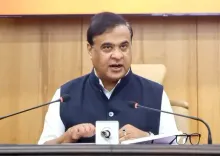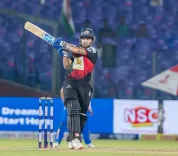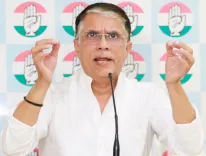Is the Supreme Court Criticizing Summons to Lawyers?
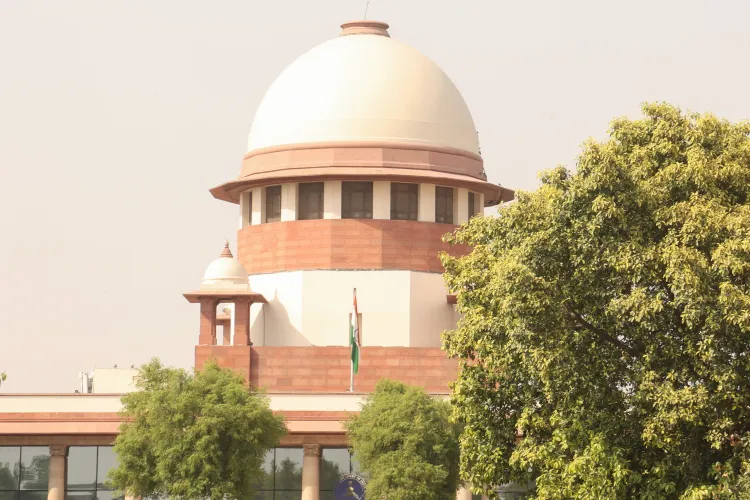
Synopsis
Key Takeaways
- The Supreme Court is critically examining the practice of summoning lawyers.
- Such actions could jeopardize the independence of the legal profession.
- Confidentiality between lawyers and clients is protected under law.
- Interim relief was granted to the petitioner against coercive actions.
- Guidelines are needed to uphold lawyer-client privilege.
New Delhi, June 25 (NationPress) The action of investigation agencies summoning legal practitioners for providing their opinions to clients is now under the judicial examination of the Supreme Court. A panel comprising Justices K.V. Viswanathan and N.K. Singh has initially expressed that such summons appear legally untenable and pose a threat to the independence of the legal profession.
"Allowing investigative bodies or police to directly summon defense lawyers who advise clients in ongoing cases would severely compromise the autonomy of the legal profession and could even represent a direct threat to the independence of justice administration," the Court stated.
This observation arose while the Justice Viswanathan-led panel addressed a request from a lawyer contesting the summons issued to him by the Gujarat Police, despite his lack of status as either an accused or a key witness in the FIR or the disputed agreement.
Providing interim protection to the applicant, the Supreme Court declared that no coercive measures would be taken against him concerning the summons issued by the Assistant Police Commissioner.
The Court also framed two pivotal questions for the consideration of the higher judiciary and instructed that the case be forwarded for further directives to the Chief Justice of India (CJI).
The first inquiry posed was whether a lawyer, who is involved in a case purely in an advisory capacity, should be subject to direct summons from investigative agencies. The second inquiry was whether, even if the prosecution asserts that the individual's role transcends that of a mere lawyer, should such direct summons be permitted without judicial review.
Stressing that the integrity of the justice delivery system is at stake, the Supreme Court sought the expertise of Attorney General of India R. Venkataramani, Solicitor General Tushar Mehta, the Bar Council of India, the Supreme Court Bar Association (SCBA), and the Supreme Court Advocate-on-Record Association for guidance in this matter.
The Special Leave Petition (SLP) submitted by advocate Ashwinkumar Govindbhai Prajapati contested the Gujarat High Court's refusal to annul the notice served to him under Section 179 of the BNSS (Bharatiya Nagarik Suraksha Sanhita) concerning an FIR filed under Sections 296(b) and 351(3) of the Bharatiya Nyaya Sanita, 2023, the Gujarat Money Lenders Act, 2011, and the Scheduled Castes and the Scheduled Tribes (Prevention of Atrocities) Act, 1989.
The petition claimed that the applicant was neither an accused nor a crucial witness regarding the FIR or the agreement but was being compelled to respond solely due to his professional capacity as an advocate, which is unlawful.
Furthermore, it argued that maintaining the notice sets a dangerous precedent that could intimidate lawyers representing contentious clients or causes, thereby jeopardizing the criminal justice framework and violating public interest.
According to Section 132 of the Bhartiya Sakshya Adhiniyam, 2023, communications between a lawyer and their client are confidential and cannot be disclosed.
Moreover, lawyers have a professional obligation to uphold the confidentiality of client communications and advice offered during legal proceedings.
Recently, the ED issued summons to prominent advocates Arvind Datar and Pratap Venugopal, which were later retracted by the federal anti-money laundering agency.
In a correspondence to CJI B.R. Gavai, SCAORA President Vipin Nair urged the Supreme Court to take suo motu cognizance of this issue and assess the legality and appropriateness of such summons directed at legal professionals for opinions provided in good faith.
The Bar organization appealed to the Supreme Court to protect the constitutional and professional rights granted to lawyers and to delineate proper guidelines to prevent any further deterioration of lawyer-client privilege.

